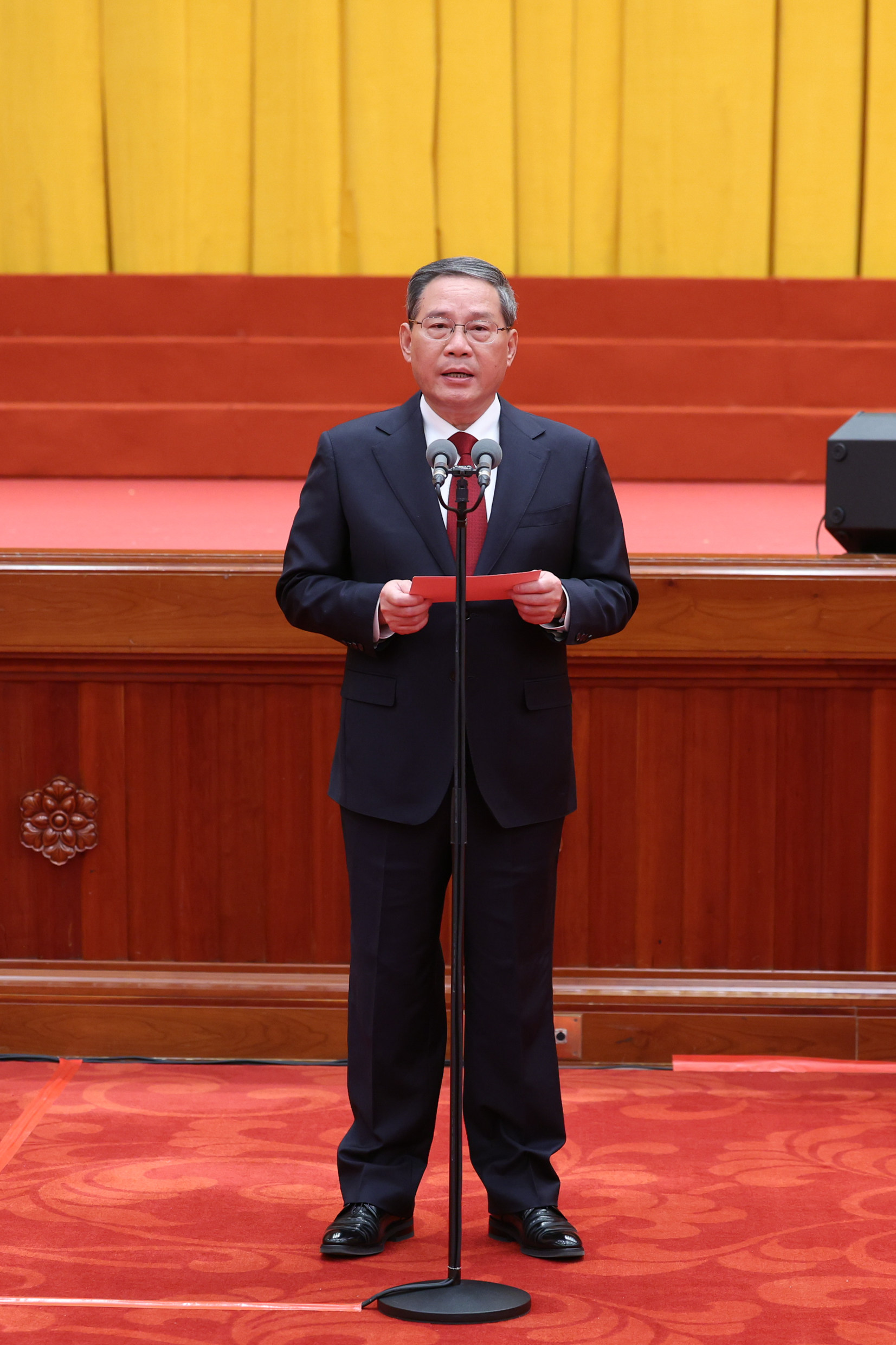Traders are eagerly awaiting China’s annual legislative meeting for clues about whether the recent market rebound will sustain, as the high-stakes political gathering sets the nation’s economic agenda for the year.
The National People’s Congress (NPC), which kicks off on Tuesday in Beijing and brings together more than 2,000 lawmakers from across the country, will be crucial for investors betting on fresh policies to buttress the ongoing stock market rally.
Key topics to watch include policymakers’ resolve to tackle the property market’s woes, financing and fiscal reforms at the local government level and demand-side stimulus measures to boost consumption, according to Goldman Sachs.
“The GDP [gross domestic product] target and the government deficit ratio will be closely monitored by the market,” said Dai Ming, a fund manager at Huichen Asset Management in Shanghai. “The two macro figures will set the stage for aggregate demand in China this year at such a policy-sensitive time and show investors if the government really prioritises economic growth.”

The CSI 300 Index has risen 11 per cent since hitting a five-year low last month after Beijing replaced the head of the stock-market regulator, increased direct state buying through the sovereign wealth fund and cracked down on quantitative trading by hedge funds.
Hong Kong’s Hang Seng Index has also trimmed the year-to-date loss to less than 3 per cent after ranking among the world’s worst-performing major equity gauges this year. However, some investors fear the rally could be short-lived as there is scant evidence of a possible re-acceleration in growth amid a lack of strong stimulus.
Premier Li Qiang is widely expected to set the annual GDP target at around 5 per cent, the same as last year, in his first government work report to be delivered to the NPC delegates for approval, according to ING. The budget deficit will probably be around 3.5 per cent, compared with 3 per cent a year earlier, said the Dutch bank.
The market will get a boost and have more confidence in the outlook if the deficit ratio surpasses the range of 3 per cent to 3.5 per cent, according to Goldman Sachs. Quotas on special government bond issuance in excess of 1 trillion yuan (US$139 billion) and specific measures to boost consumption will act as added catalysts, the US investment bank said.

The NPC and the Chinese People’s Political Consultative Conference (CPPCC), an advisory body on government policies from the economy to culture and sports, are known as “two sessions”. The CPPCC opens on Monday, a day before the NPC.
The two gatherings have averaged eight or nine days since the outbreak of Covid-19 in 2020, compared with about two weeks in the pre-pandemic era.
Worries about the sluggish performance of stocks around the two sessions are unwarranted, if history is any guide. There was a post-two sessions bump in both China and Hong Kong in at least 13 of the past 24 years, or 54 per cent of the time, according to the Post’s analysis of previous years’ data.
While the Shanghai Composite Index fell by 0.9 per cent on average during the meetings since 2000, it rose by 1.2 per cent on average two weeks after the gatherings, the data shows.
Hong Kong’s market has seen a similar pattern in the same period. The Hang Seng Index dropped by 1.7 per cent on average when the NPC and CPPCC sessions were in progress, followed by a rebound of 1.2 per cent on average a fortnight later.
China’s markets are known to historically stabilise around key political events, helped by either direct state buying or discreetly preventing state-backed institutional investors from offloading shares.
This year’s NPC will be equally scrutinised as investors look for signs of any long-term strategic development plan after the Communist Party indefinitely postponed the third plenum of the Central Committee that was supposed to convene late last year to hammer out deeper reform measures.
All signs indicate policymakers have been ratcheting up policy support to put revival of economic growth on the top agenda, fuelling optimism that the momentum in stocks has solid foundation. Last month, Beijing called for a new round of large-scale equipment upgrades and trade-in of consumer goods to boost consumption, while Premier Li urged more steps to attract foreign investments. Plans are also afoot to draft a law that would level the playing field between the private sector and state-owned enterprises, according to state media.
“In the run-up to the two sessions, we expect the market to be stable and even have some upside on policy hopes and regulatory curbs on shorting the market,” said Fang Yi, an analyst at Guotai Junan Securities in Shanghai.

